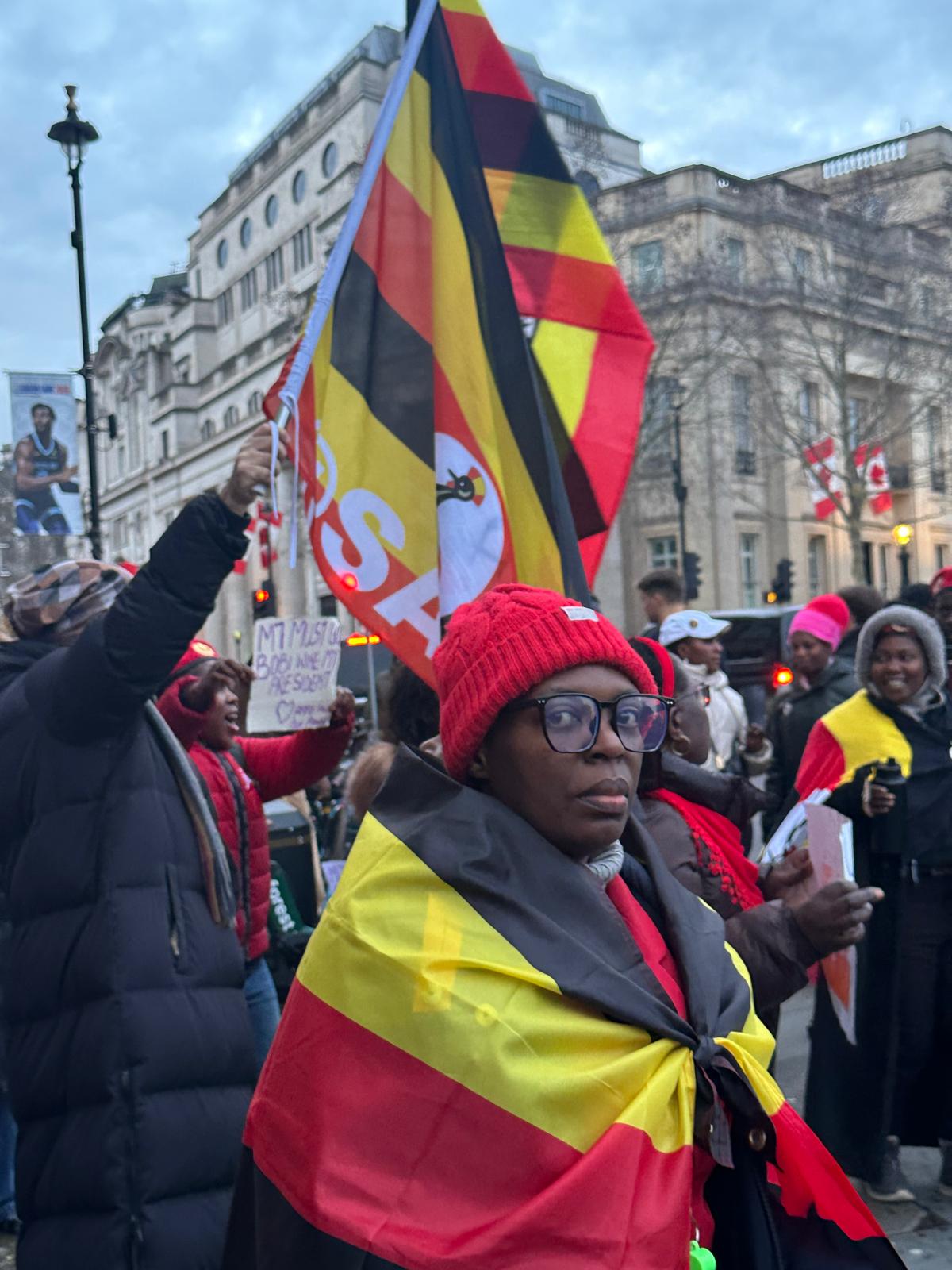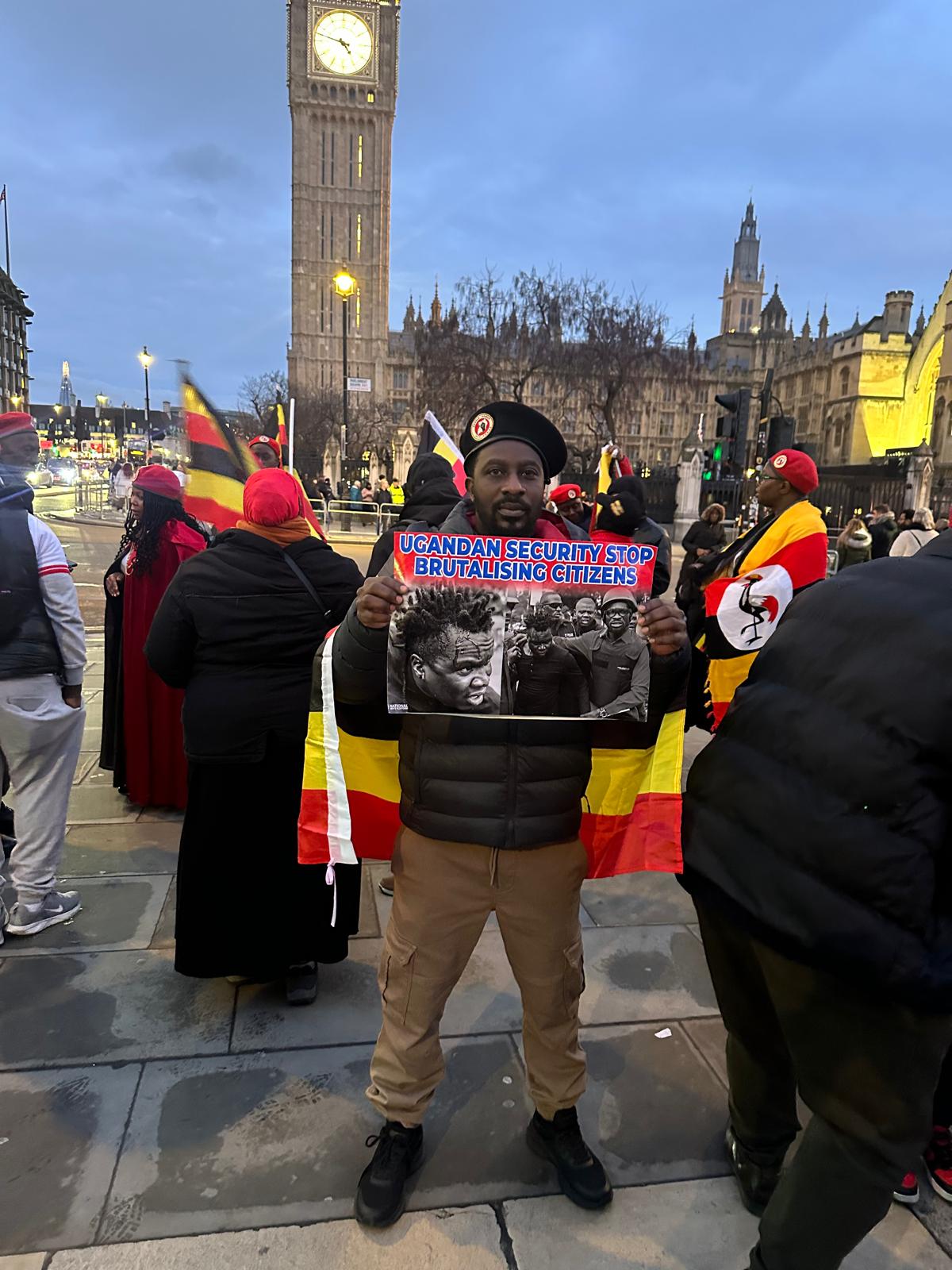By JULIUS MBALUTO
Ugandans on 17th January 2026 converged at Uganda House (Uganda High Commission) in London and protested against poll results with President Museveni being declared the winner again for the 7th term in the just concluded elections conducted on the 15th January 2026.
Most of who came to protest pointed out that the election was not free and fair. There was internet shutdown two days before and throughout the election period which was interpreted by many as a government ploy to rig the election in favour of President Museveni. On the election day, voting started late and ended early at 5 pm which meant a lot of people registered as voters didn't have the chance to vote.

The machines which were to be used to aid voting didn't work, resulting to the use of National register as the basis for identification and verification of voters. Ugandans protesting alleged that this gave the government the chance to bring in already stuffed ballot boxes in favour of President Museveni. However, election observers said they saw no evidence of ballot stuffing.
Uganda's Electoral Commission announced on Saturday that President Museveni won by 71.65 per cent beating his closest rival 43 year-old Robert Kyagulanyi (Bobi Wine) who got 24.72 per cent. President Museveni who is 81 years old oversaw Uganda's constitutional amendment to remove the age and term limits so that he could vie again. He has ruled Uganda since 1986 and he has been the president for 40 years. He claims that he represents continuity, that he brought peace to Uganda and he is the best President to lead Uganda.
However, Uganda's protesting criticized the President for giving highly ranked jobs mostly to members of his family. They criticized his leadership saying that it was family rulership as most of Museveni's family members were in the NRM government.
They said to stop that family rulership, Museveni must go. Robert Kyagulanyi, the main contender witnessed police and soldiers presence during his campaigns who would occasionally would block his way. He was kept under House arrest during voting and he escaped leaving his family surrounded by the the police. Kyagulanyi last spoke, rejected the poll results and said:
“Currently, I am not at home, although my wife and other family members remain under house arrest. I know that these criminals are looking for me everywhere, and I am trying my best to keep safe,”






